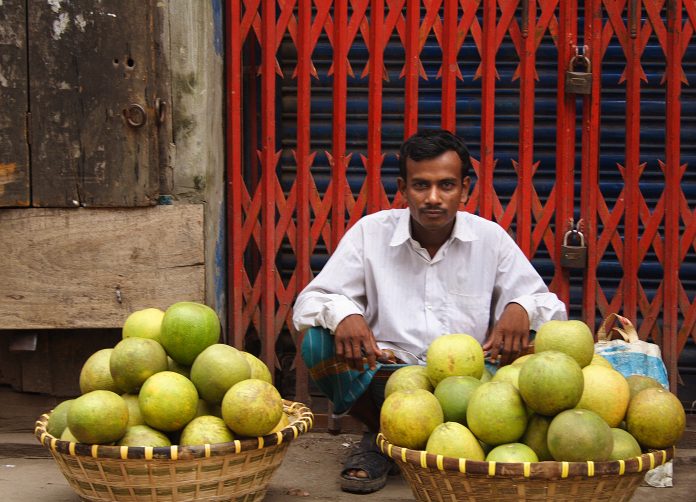Languages, with their implications for identity, communication, social integration, education, and development, must be protected on Mother Language Day
Yet, due to globalization processes, they are increasingly under threat or disappearing altogether.
When languages fade, so does the world’s rich tapestry of cultural diversity. Opportunities, traditions, memory, unique modes of thinking and expression valuable resources for ensuring a better future are also lost.
At least 43% of the estimated 6000 languages spoken in the world are endangered.
Only a few hundred languages have genuinely been given a place in education systems and the public domain, and less than a hundred are used in the digital world. International Mother Language Day has been observed every year since February 2000 to promote linguistic and cultural diversity and multilingualism.
Languages are the most powerful instruments of preserving and developing our tangible and intangible heritage. All moves to promote the dissemination of mother tongues will serve not only to encourage linguistic diversity and multilingual education but also to develop fuller awareness of linguistic and cultural traditions throughout the world and to inspire solidarity based on understanding, tolerance and dialogue.
The International Mother Language Day was established by the United Nations Educational, Scientific and Cultural Organisation (UNESCO) on the 17th of November 1999 and was firstly observed in 2000.
This day commemorates the incident in 1952 in which students from different educational institutions demonstrating for recognition of their language, Bangla, were shot and killed by police in the capital of Bangladesh. These individuals were protesting the wipeout of their culture and language, a change enforced by Pakistan, which had democratic control of Bangladesh.
This moment echoed globally and through the decades.
February 21st is the International Mother Language Day observed each year all over the world with the defined purpose of preserving, protecting and promoting the incredible linguistic diversity that we humans have. Linguistic diversity is receptacle of human evolution and thus, an immensely fecund source of irreplaceable intellectual, literary and cultural richness.
International Mother Language day 2019 theme is: “Indigenous languages matter for development, peacebuilding and reconciliation”.
This year, International Mother Language day 2019 will be framed by the International Year of indigenous languages 2019 (IYIL19) around the theme: “Indigenous languages matter for development, peacebuilding and reconciliation”. International Mother Language Day (IMLD) is celebrated every year on 21 February with the overall objective to promote linguistic diversity and multilingual education.
In respect of this day, the World Assembly of Youth (WAY) aims to bring perception to this issue and appeal to the society to embrace this day globally. They encourage young people to rejoice this day and the value of all mother tongues for linguistic and cultural diversity.
Besides, in the context of education itself, the significance of mother tongue language is obvious acknowledging the fact that it is more approachable to teach young people in their own language.
It is pivotal for young people to recognise that language diversity helps to enrich us all; that this diversity of languages is a treasure, not a barrier.
Here are how some people are marking this day:
Happy International Mother Language Day! To celebrate the linguistic and cultural diversity of this country, we have created a Spotify playlist featuring some of Australia’s 250+ #IndigenousLanguages.#MotherLanguageDay #IYIL #IYIL2019
Stream here: https://t.co/ppsjRtUxGt pic.twitter.com/oYbIF95LeU
— AIATSIS (@AIATSIS) February 20, 2019
Be unashamed to speak your home language. English is not a master to whom your home language should be enslaved.
All languages have the power and esteem to be used in social, academic and commercial contexts.#MotherLanguageDay
— Christo (@ChristoThurston) February 21, 2019
Celebrating #MotherLanguageDay!
Did you know the #NobelPrize in Literature has been awarded to Laureates writing in a total of 25 different languages including Bengali, Hungarian and Turkish, the native language of Orhan Pamuk, whose manuscript is pictured here. pic.twitter.com/M7SU0i3pzV
— The Nobel Prize (@NobelPrize) February 21, 2019
On International #MotherLanguageDay, Rekhta presents an impassioned poetry recitation by the very talented @DrKumarVishwas. pic.twitter.com/jOZTQ2YX2y
— Rekhta (@Rekhta) February 21, 2019
Getting ready for International Mother Language Day on February 21. Choose a language card and try to speak the language spoken by your friends. Be open-minded and courageous. try new things.#IBPYP #motherlanguageday #IBlearnerprofile @blisankara pic.twitter.com/G7cNL6OO7n
— (@Ayplanet) February 18, 2019




![Europe’s housing crisis: A fundamental social right under pressure Run-down appartment building in southeast Europe set before a moody evening sky. High dynamic range photo. Please see my related collections... [url=search/lightbox/7431206][img]http://i161.photobucket.com/albums/t218/dave9296/Lightbox_Vetta.jpg[/img][/url]](https://www.openaccessgovernment.org/wp-content/uploads/2025/04/iStock-108309610-218x150.jpg)






